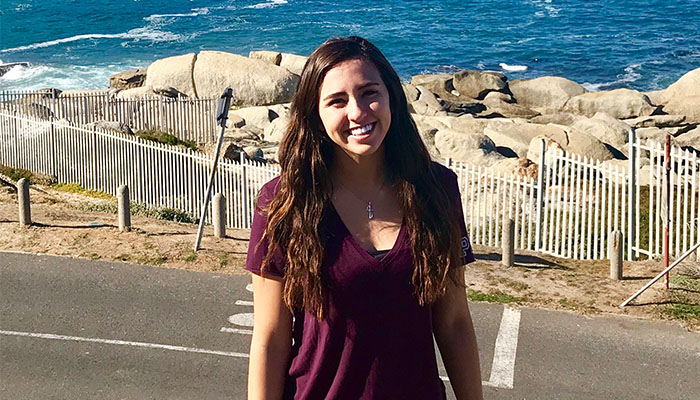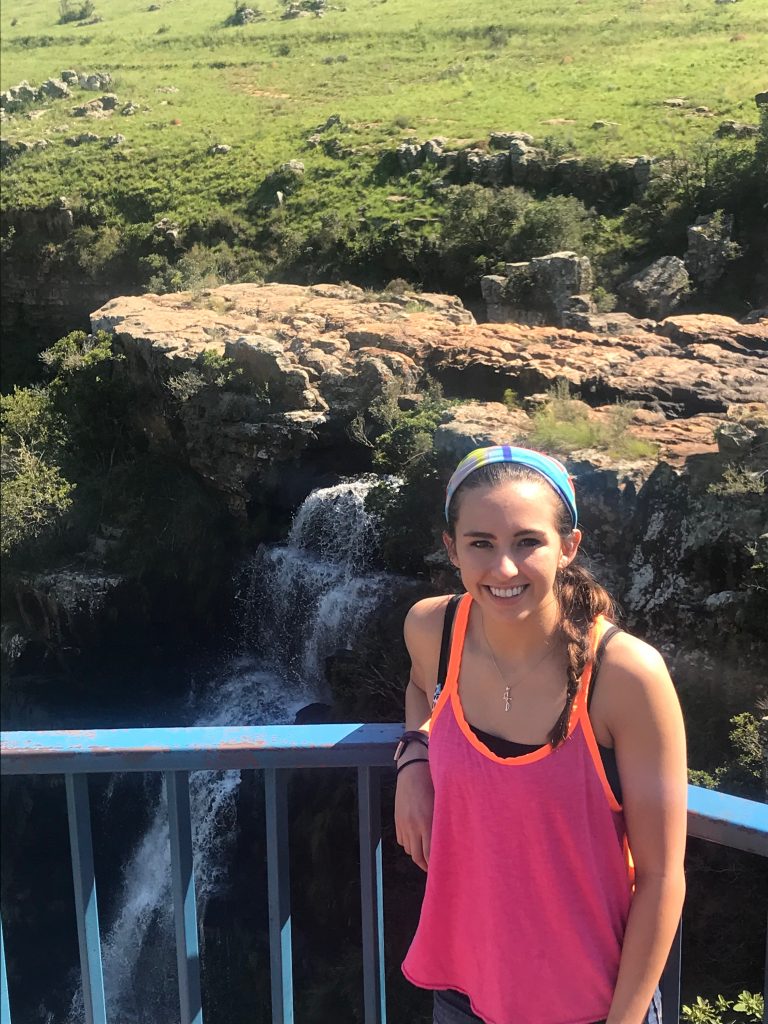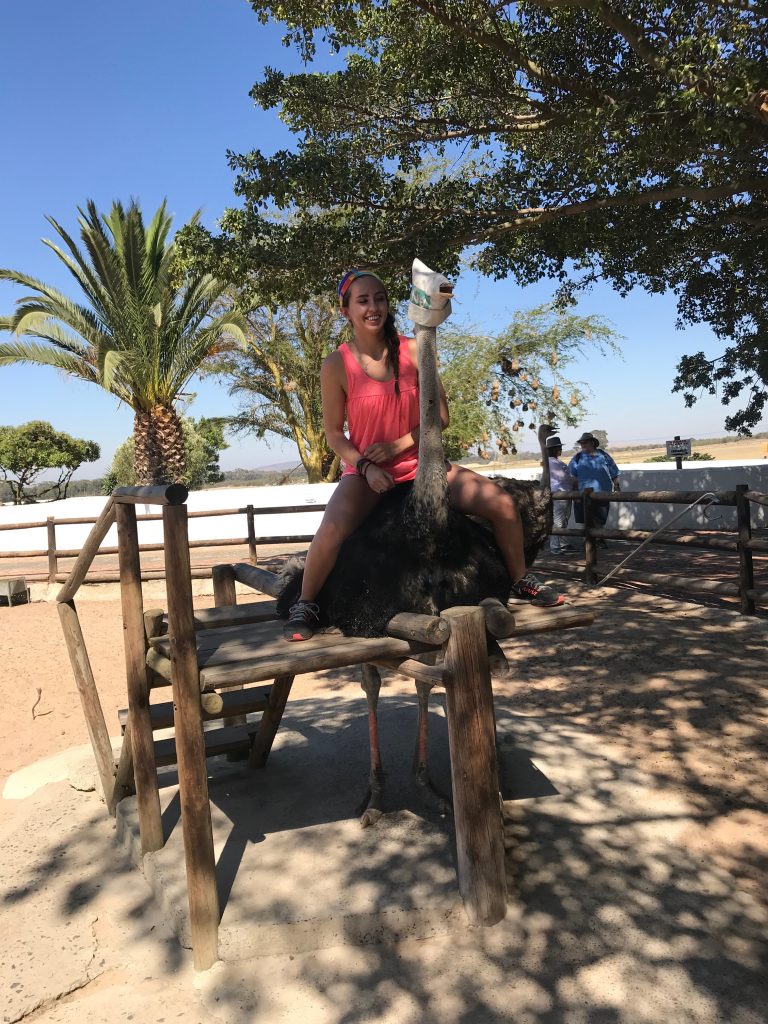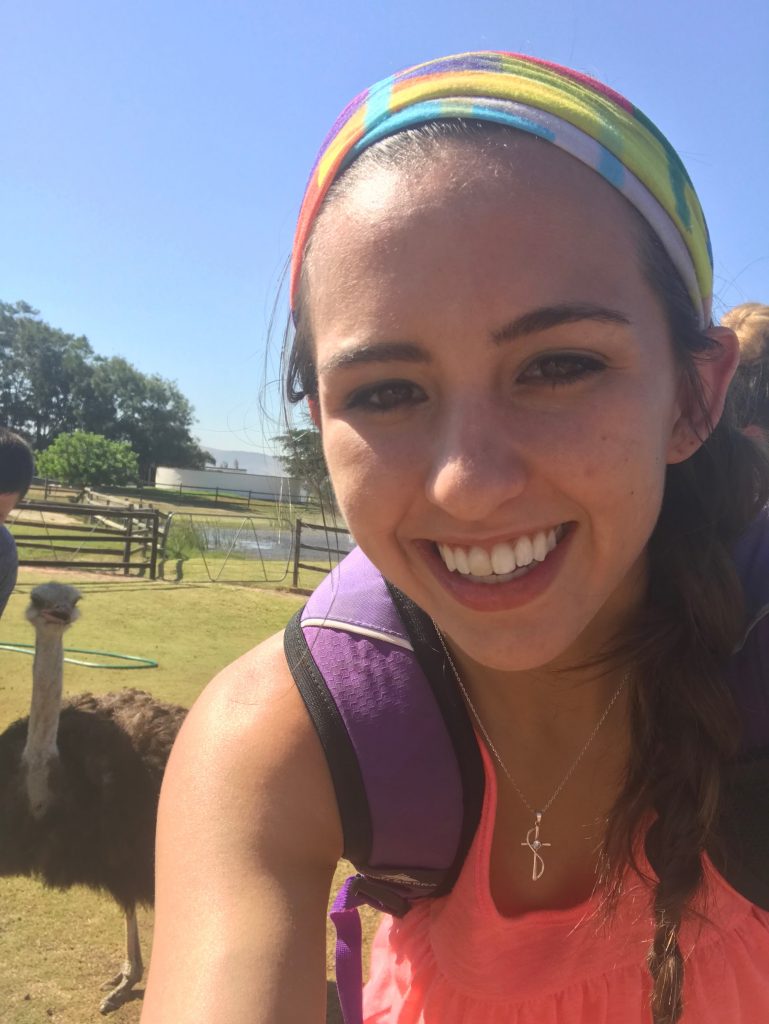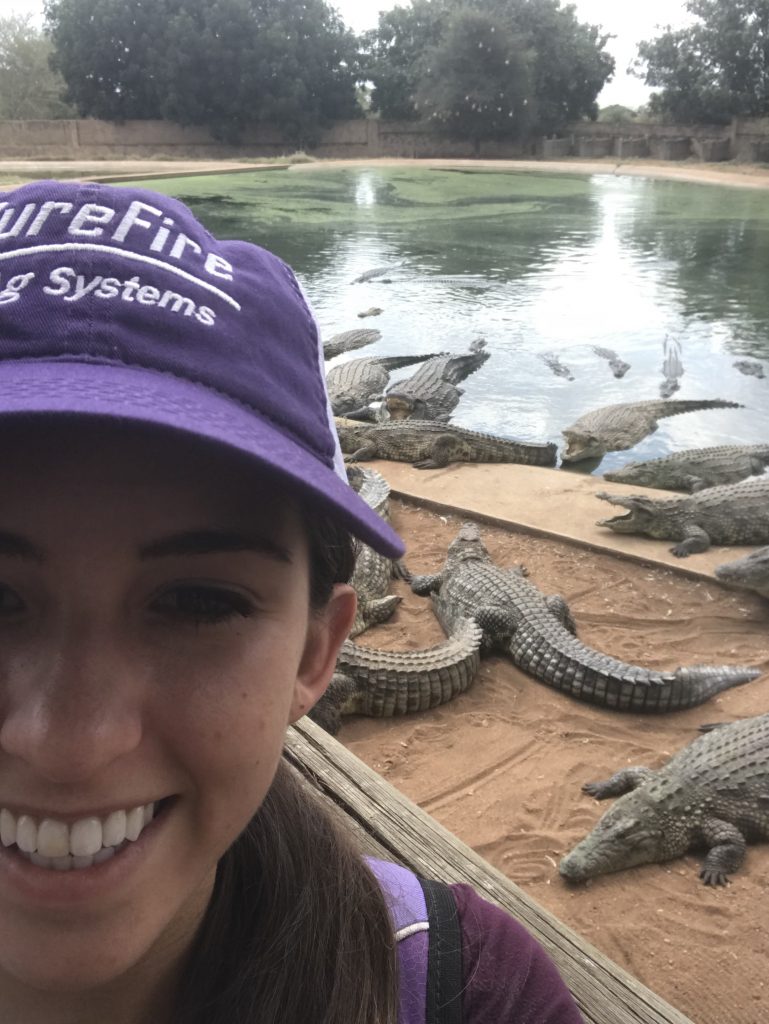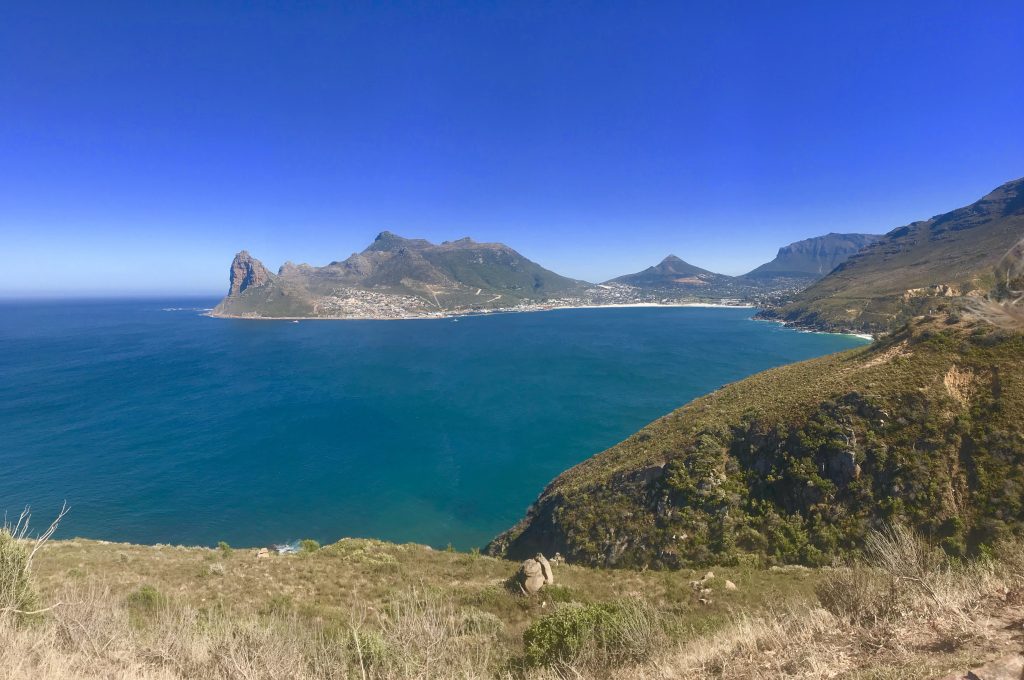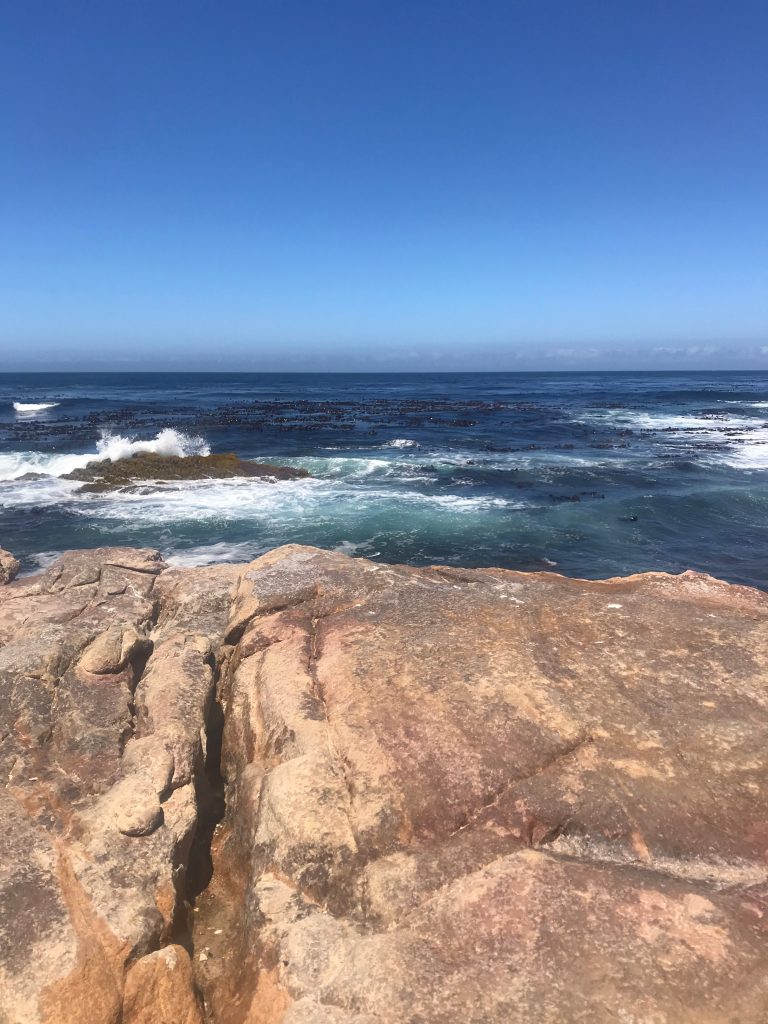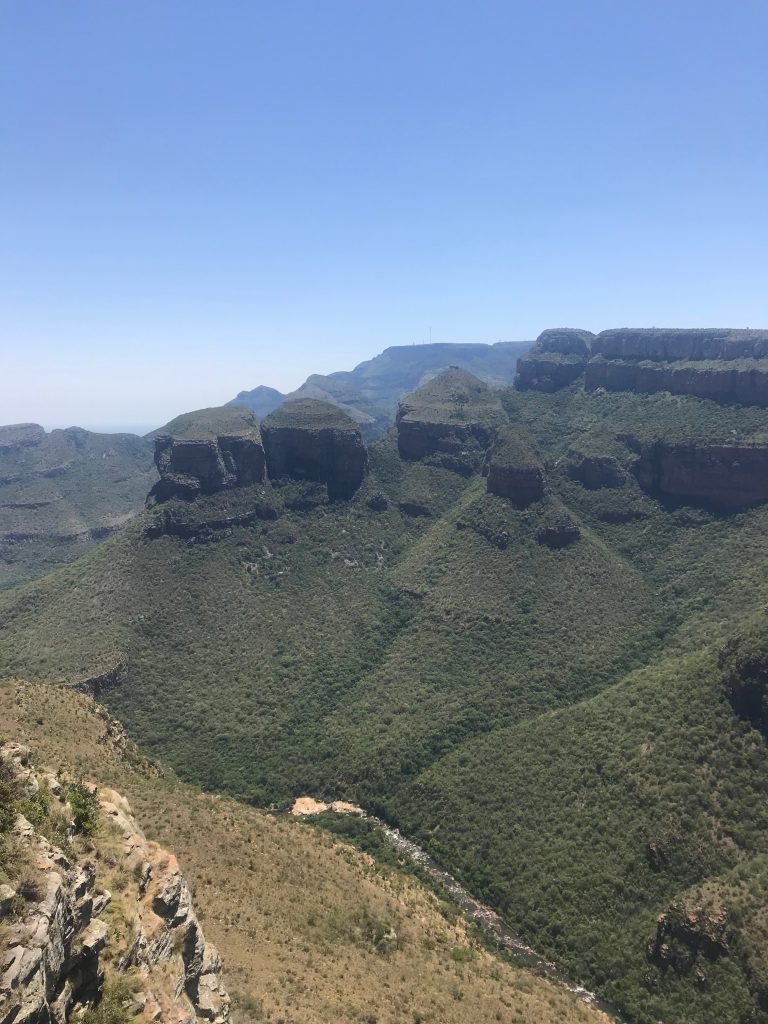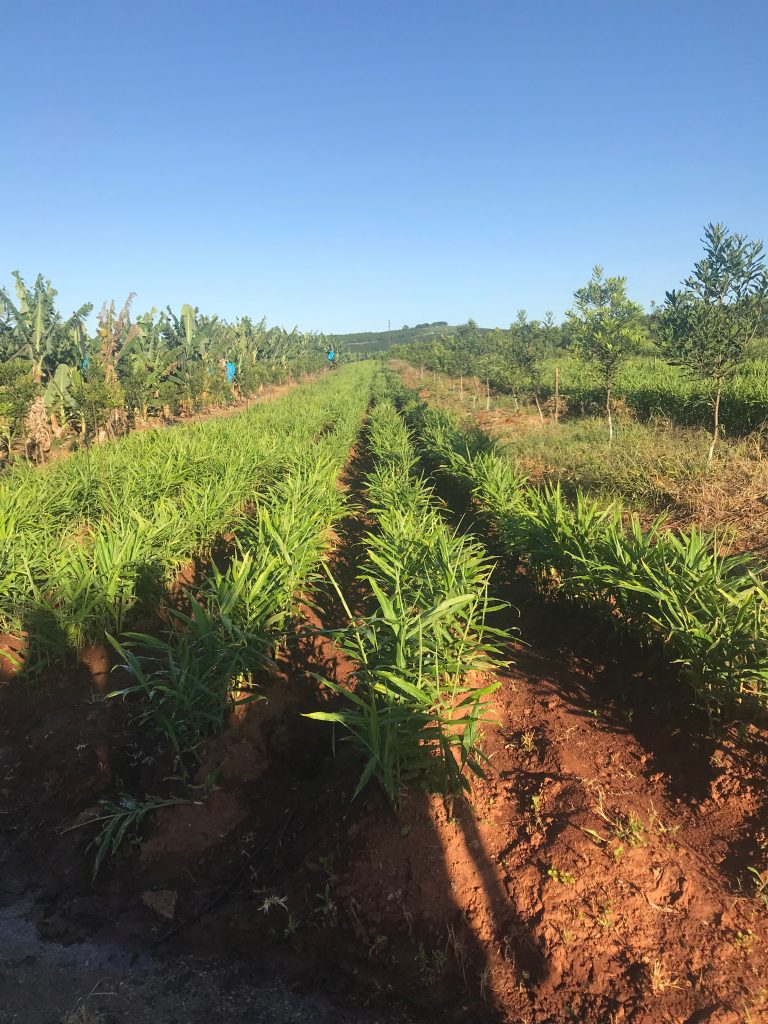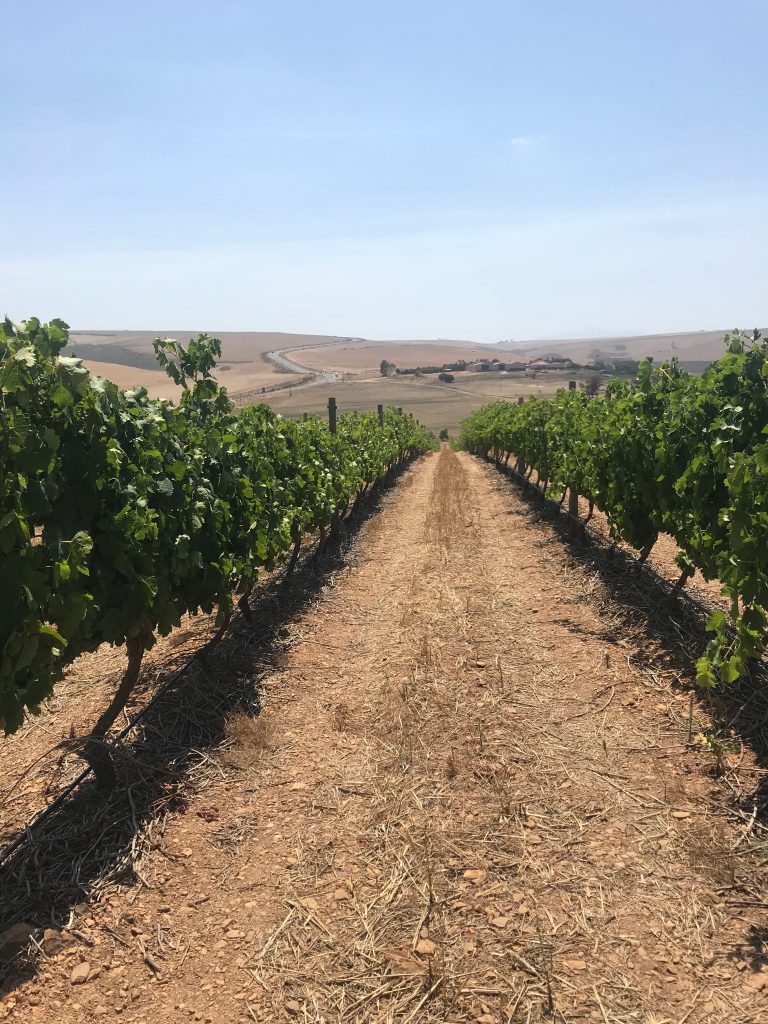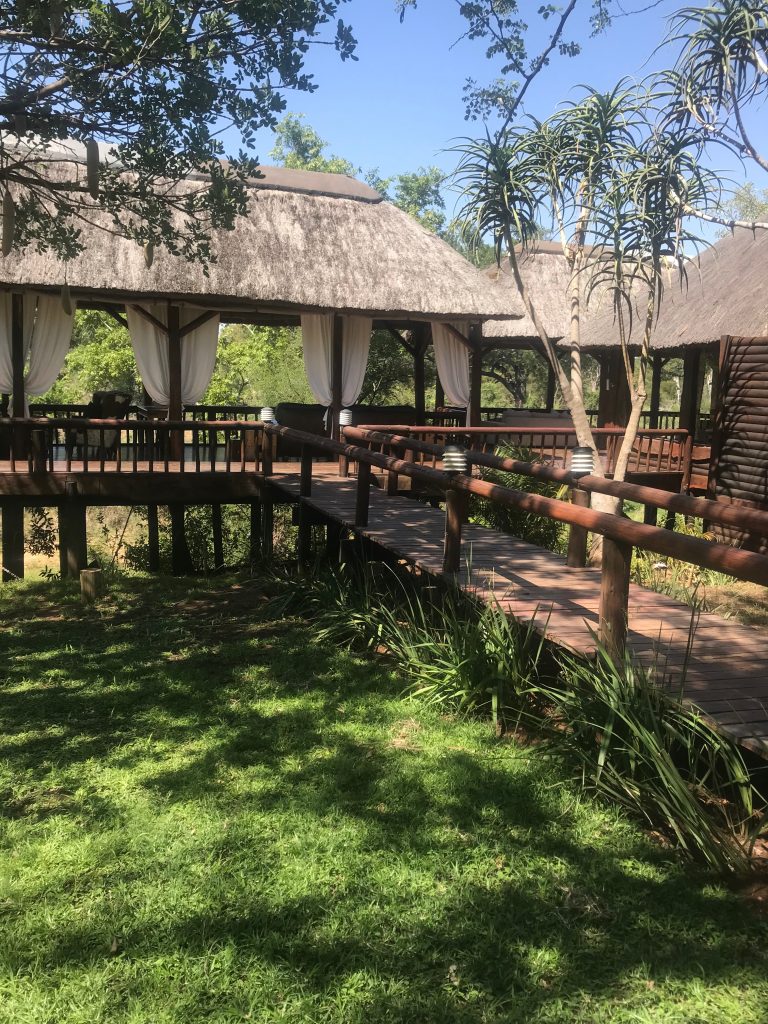
By CRISTINA JANNEY
Hays Post
Marie Reveles of Hays spent her winter break on the plains and mountains of South Africa.
Reveles, 19, a freshman at Kansas State University, and other FFA students traveled to South Africa from Jan. 4 through 15 to experience the culture, religion and agriculture of the African nation. Reveles, who was a state FFA officer when she was at Hays High, applied to participate in the trip.
“The culture there was amazing, and it was so amazing because I think it did remind me of my hometown of Hays, Kan. The people there are very, very generous. Even if they don’t have a lot to share, they will share what they can. They are always there to help people out,” she said.
The group’s tour guide told the FFA students he once lived in a neighborhood in which a man lost his home and everything he had. The neighbors rallied to his aid and helped him with anything and everything he needed until he could get back on his feet.
Reveles said she was most affected when she visited a poor community. The residents had no running water. Two wells served the village of 15,000 people. The homes were made of sheets of metal propped up against each other. The ground looked like a gravel parking and was very difficult to grow anything in. Only 400 students in the community can attend school.
“It was a very eye-opening experience,” she said. “It grounded me that this was not a vacation, but it was a learning experience too. When we visited there, we saw some very sad situations, but they were very happy people. It was very interesting to me that community thrived because they help one another whenever they need it.”
The residents greeted the students, sang, danced and acted out stories.
“We saw these two little boys. They were playing tag, and they were laughing so loud. The youth were singing and dancing. That was my favorite part. I started tearing up,” she said. “I have never seen such passion and energy and excitement in what they were doing. It reminded me that you don’t need a lot of things — material things — to be happy. Because those people basically had next to nothing, and they were the happiest people I have ever seen in my entire life.”

Reveles had a close encounter with Africa wildlife at Kruger National Park. The students were on a safari when their guide spotted fresh cheetah tracks. Within five minutes, the group spotted a mother cheetah with her three cubs. The students were able to leave the confines of their vehicle and walk 10 to 12 feet from the big cat and her cubs. Although some of the students were eager to regain the safety of the vehicle, Reveles stood firm.
“I was really not frightened. I was really excited,” she said. “Things like that intrigue me.”
While visiting the preserve, Reveles tried roasted wildebeest for the first time. On the trip, the group sampled other native dishes, including ostrich steak springbok, blesbok, calamari and a variety of fish dishes.
Reveles visited a variety of farms on their trip. The South Africans grow a great deal of corn. Farmers there grow both yellow and white corn, but there they eat the white corn and feed the yellow corn to livestock. Corn was an important staple for poor families in Africa, especially during Apartheid. Today South Africans have developed both sweet and savory corn dishes and serve these dishes at breakfast, lunch and dinner.
South Africa has a warmer climate than Kansas, so the country also grows nuts, citrus fruit, bananas and avocados.
The South African farmers struggle with many of the same issues that American farmers do, including water shortages and pests. In the warmer climate, fruit growers use nets or bags to cover fruit to prevent sunburn. Just like in the U.S., South African farmers find it more difficult to market blemished fruit to consumers.

South African Farmers use organic farming methods as well herbicides and pesticides. Farms can be small family farms or large corporate operations; however, in South Africa, what is grown is largely dictated by the government.
The students visited a farmer’s market in Pretoria, which Reveles compared to a mini-carnival or state fair. In addition to fresh fruit, the market featured local arts, crafts and coffee stands.
In addition to the farming operations, the students visited several points of interest in the county. These included Table Rock Mountain, the Cape of Good Hope, the most southern point on the African continent, and an area that was home to African penguins.
Reveles was so inspired by her ag teacher at Hays High, Curt Vajnar, she has decided to major in ag education and hopes to eventually teach agriculture at the high school level. She hopes she can share her experiences in FFA, including her trip to South Africa, with other young people.
“My adviser, Mr. Vajnar, was so influential to me,” she said. “Without him, I would not be where I am today, and I would love to be that person for hundreds of students.”
